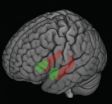(Press-News.org) The more a child is familiar with logos and other images from fast-food restaurants, sodas and not-so-healthy snack food brands, the more likely the child is to be overweight or obese.
And, unfortunately, studies have shown that people who are overweight at a young age, tend to stay that way.
A research team that included a Michigan State University professor tested kids on their knowledge of various brands – including their ability to identify items such as golden arches, silly rabbits and a king's crown – and found that those who could identify them the most tended to have higher body mass indexes, or BMIs.
"We found the relationship between brand knowledge and BMI to be quite robust," said Anna McAlister, an MSU assistant professor of advertising and public relations who was a member of the research team. "The kids who know most about these brands have higher BMIs."
The children – ages 3 to 5 – were tested by being given pictures of unhealthy food-related logos. They then were given pictures of food items, packaging and cartoon characters and asked to match the items with their corresponding brand logos.
"The results varied, which is a good thing," McAlister said. "Some kids knew very little about the brands while others knew them exceptionally well."
Doing the study twice, the research team found that among one group exercise tended to offset the negative effects of too much familiarity with unhealthy food. However, that finding could not be duplicated in the second group.
"The inconsistency across studies tells us that physical activity should not be seen as a cure-all in fixing childhood obesity," McAlister said. "Of course we want kids to be active, but the results from these studies suggest that physical activity is not the only answer. The consistent relationship between brand knowledge and BMI suggests that limiting advertising exposure might be a step in the right direction too."
Because kids get most of their food messages from television, the question is what causes more harm – the sedentary lifestyle brought on by too much time in front of the TV or the unhealthy food messages kids are bombarded with?
"From our results," she said, "it would suggest that it's not the TV time itself, but rather what is learned about these brands. It's probably the developing food knowledge, not the sedentary lifestyle."
University of Oregon professor and co-author of the paper, Bettina Cornwell, noted that the findings provide more insight into children's relationship with food, or their "first language of food." It doesn't take long, she said, for children to figure out what they like and don't like, something that can stick with them their entire lives.
"What we're trying to show here is just how young kids are when they develop their theory of food," McAlister said. "As early as 3 years of age, kids are developing a sense of what food means to them."
INFORMATION:
The findings were published in the recent issue of the journal Appetite.
Kids who know unhealthy food logos more likely to be overweight
2014-06-27
ELSE PRESS RELEASES FROM THIS DATE:
'Compressive sensing' provides new approach to measuring a quantum system
2014-06-27
In quantum physics, momentum and position are an example of conjugate variables. This means they are connected by Heisenberg's Uncertainty Principle, which says that both quantities cannot be simultaneously measured precisely. Recently, researchers have been developing novel techniques, such as "weak measurement," to measure both at the same time. Now University of Rochester physicists have shown that a technique called compressive sensing also offers a way to measure both variables at the same time, without violating the Uncertainty Principle.
In a paper published in ...
Developmental psychologist explains her life's work studying the mysteries of the mind
2014-06-27
HAMILTON, ON, June 27, 2014—Developmental psychologist Daphne Maurer has spent more than four decades studying the complexities of the human mind.
As the director of the Visual Development Lab at McMaster University and president of the International Society on Infant Studies, Maurer will present her life's work at the Biennial International Conference on Infant Studies in Berlin July 4th.
Over the course of her career she has established a reputation for building new understanding of one of the most challenging and mysterious aspects of human development: how our ...
Monkeys also believe in winning streaks, study shows
2014-06-27
Humans have a well-documented tendency to see winning and losing streaks in situations that, in fact, are random. But scientists disagree about whether the "hot-hand bias" is a cultural artifact picked up in childhood or a predisposition deeply ingrained in the structure of our cognitive architecture.
Now in the first study in non-human primates of this systematic error in decision making, researchers find that monkeys also share our unfounded belief in winning and losing streaks. The results suggests that the penchant to see patterns that actually don't exist may be ...
EARTH Magazine: Rosetta off to decipher a comet's secrets
2014-06-27
Alexandria, Va. — "Hello World." Upon hearing that brief message, scientists at the European Space Agency (ESA) and followers around the world sent up a collective cheer. Rosetta — the ESA spacecraft currently on a 10-year mission to orbit and land on a comet — awoke in January after a three-year hibernation, and was ready to get to work.
The Rosetta spacecraft launched on March 2, 2004, to study Comet 67P/Churyumov-Gerasimenko. In August, Rosetta will enter the comet's orbit. By November, scientists will plant a lander on the comet, in the hope of learning more about ...
Early life stress can leave lasting impacts on the brain
2014-06-27
MADISON, Wis. — For children, stress can go a long way. A little bit provides a platform for learning, adapting and coping. But a lot of it — chronic, toxic stress like poverty, neglect and physical abuse — can have lasting negative impacts.
A team of University of Wisconsin-Madison researchers recently showed these kinds of stressors, experienced in early life, might be changing the parts of developing children's brains responsible for learning, memory and the processing of stress and emotion. These changes may be tied to negative impacts on behavior, health, employment ...
Are conservatives more obedient and agreeable than their liberal counterparts?
2014-06-27
Over the last few years, we've seen increasing dissent among liberals and conservatives on important issues such as gun control, health care and same-sex marriage. Both sides often have a difficult time reconciling their own views with their opposition, and many times it appears that liberals are unable to band together under a unifying platform. Why do conservatives appear to have an affinity for obeying leadership? And why do conservatives perceive greater consensus among politically like-minded others? Two studies publishing in Personality and Social Psychology Bulletin ...
Extinct undersea volcanoes squashed under Earth's crust cause tsunami earthquakes, according to new research
2014-06-27
New research has revealed the causes and warning signs of rare tsunami earthquakes, which may lead to improved detection measures.
Tsunami earthquakes happen at relatively shallow depths in the ocean and are small in terms of their magnitude. However, they create very large tsunamis, with some earthquakes that only measure 5.6 on the Richter scale generating waves that reach up to ten metres when they hit the shore.
A global network of seismometers enables researchers to detect even the smallest earthquakes. However, the challenge has been to determine which small ...
Climate change and the ecology of fear
2014-06-27
Climate change is predicted to have major impacts on the many species that call our rocky shorelines home. Indeed, species living in these intertidal habitats, which spend half their day exposed to air and the other half submerged by water, may be subjected to a double whammy as both air and water temperatures rise. Given the reliance of human society on nearshore coastal ecosystems, it is critical that we better understand how climate change will affect them.
In a recent study published in Global Change Biology, Northeastern University professor Geoffrey C. Trussell, ...
New report evaluates progress of comprehensive everglades restoration plan
2014-06-27
WASHINGTON – Although planning for Everglades restoration projects has advanced considerably over the past two years, financial, procedural, and policy constraints have impeded project implementation, says a new congressionally mandated report from the National Research Council. Timely authorization, adequate funding levels, and creative policy and implementation strategies are needed to achieve restoration benefits and to expedite implementation of the Central Everglades Planning Project. Climate change and the invasion of nonnative plant and animal species further challenge ...
USAMRIID research sheds light on how deadly lassa virus infects cells
2014-06-27
Scientists have discovered that the Lassa virus, which is endemic to West Africa, uses an unexpected two-step process to enter cells. The results, published in today's edition of the journal Science, suggest that the mechanism by which Lassa virus causes infection is more complicated than previously known.
An international team of scientists from the Netherlands Cancer Institute, Harvard Medical School, the University of Kiel in Germany, and the U.S. Army Medical Research Institute of Infectious Diseases (USAMRIID) collaborated on the study, which could lead to new approaches ...


